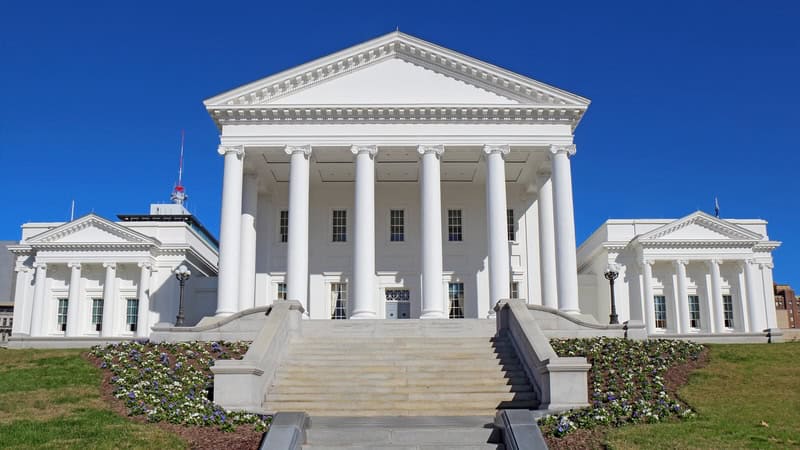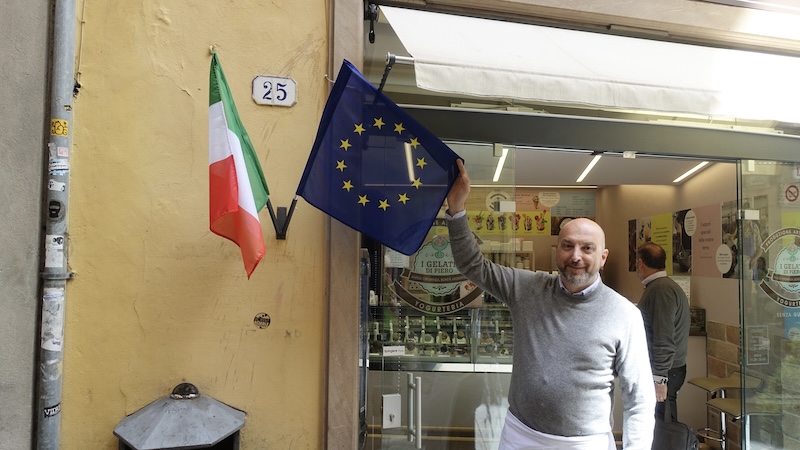Yes, Virginia, We Have a Constitution

For anyone who’s wondered why Virginia’s governor cannot run for a second term at the end of his term in office, Dr. A. E. Dick Howard has a quick response: “Article V, Section 1, the Virginia Constitution states that the governor is ineligible for the same office for the term immediately following the one for which they were elected.” Howard, the widely acclaimed, recently retired Warner-Booker Distinguished Professor of International Law Emeritus at the University of Virginia, spoke at a recent program sponsored by the Virginia Museum of History and Culture’s John Marshall Center.
When Howard speaks, people listen. Among his numerous recognitions is the1996 award by the Union of Czech Lawyers, citing Professor Howard’s promotion of the idea of a civil society in Central Europe, of its Randa Medal — the first time this honor had been conferred upon anyone but a Czech citizen. In 2004, the Greater Richmond Chapter of the World Affairs Council conferred on him their George C. Marshall Award in International Law and Diplomacy. A decade prior to that, Washingtonian magazine named Professor Howard as one of the most respected educators in the nation. In 2007, the Richmond Times-Dispatch and the Library of Virginia included Professor Howard on their list of the “greatest Virginians” of the 20th century.
Howard reminded attendees that the Tenth Amendment to the United States Constitution (part of the Bill of Rights) provides that “The powers not delegated to the United States by the Constitution, nor prohibited by it to the States, are reserved to the States respectively, or to the people.” With so much focus on the U. S. Constitution in national elections, including the 2024 one, it’s easy to overlook the impact of state constitutions on our lives. The supreme law governing a state, a constitution is the fundamental blueprint for a state’s political and legal organization; these documents vary in length but are generally more detailed, broader in scope, and amended more frequently than the 4,543-word federal Constitution. State constitutions are much longer because they govern the day-to-day relationships between government and the people.
Amendments Passed and Proposed to the Virginia Constitution
As a result of the 2024 election, an amendment to the Virginia Constitution’s Article X, Section 6-A, regarding property-tax exemption successfully passed. The ballot question was, “Should the Constitution of Virginia be amended so that the tax exemption that is currently available to the surviving spouses of soldiers killed in action is also available to the surviving spouses of soldiers who died in the line of duty?” Passage means spouses of the latter group also qualify for property-tax exemption.
Three other proposed constitutional amendments to the Virginia Constitution have been percolating (see below). According to Article XII, the process followed by a proposed amendment begins with referral to the General Assembly at its first regular session held after the next general election of members of the House of Delegates. If the proposed amendment is agreed to by a majority of all the members elected to each house, then the General Assembly submits the proposed amendment to the voters qualified to vote in elections.
Three Proposed Constitutional Amendments to Watch for in 2025
One measure seeks to enshrine abortion rights in the state’s highest law. A new proposal would require third-trimester abortions to be approved by one doctor instead of three, as the law currently mandates.
Another proposed amendment would extend constitutional protections to marriage equality.
A third involves the automatic restoration of voting rights for felons who have served their time. Virginia is the only state to permanently disenfranchise all individuals with felony convictions unless they individually petition the governor for rights restoration. The current system has no transparency and changes every four years; the amendment creates a process that is bound by transparent rules and criteria applying equally to all.
VMHC John Marshall Center Program Jan. 15, 2025:
“Who’s Your Founding Father?”
As part of the Marshall Center’s 250th anniversary of the Declaration of Independence, this program picks up where John Adams left off in 1819 when he discovered the Mecklenburg (N. C.) Declaration of Independence, crafted by zealous patriots fourteen months before Thomas Jefferson crafted his own version for the new nation. David Fleming, program presenter, is a senior writer at ESPN with three decades at Sports Illustrated and ESPN The Magazine; Fleming has a long history of prolific, versatile and imaginative work. ($38 VHMC members; $48 non-members)
Virginia Museum of History & Culture
428 N. Arthur Ashe Blvd., Richmond
Learn more about “Who’s Your Founding Father?” at VirginiaHistory.org.


